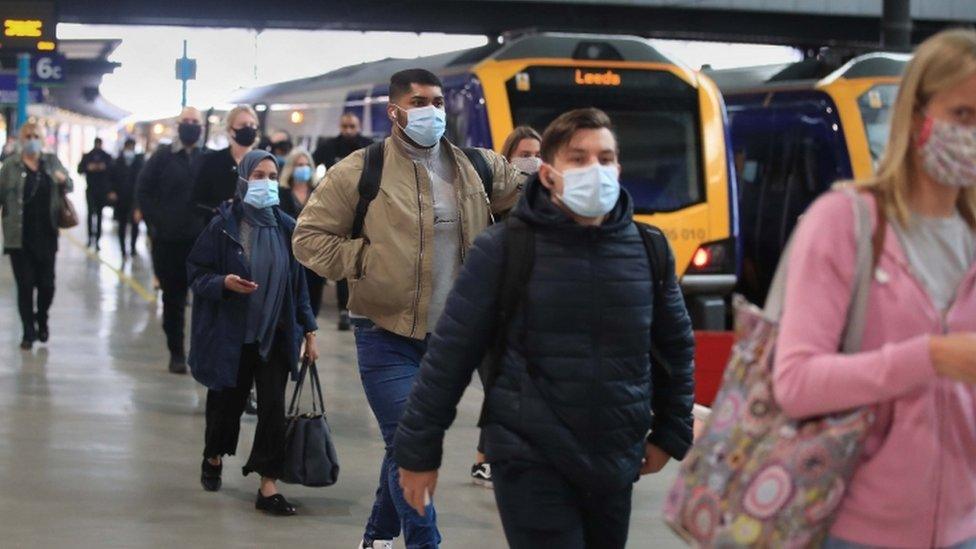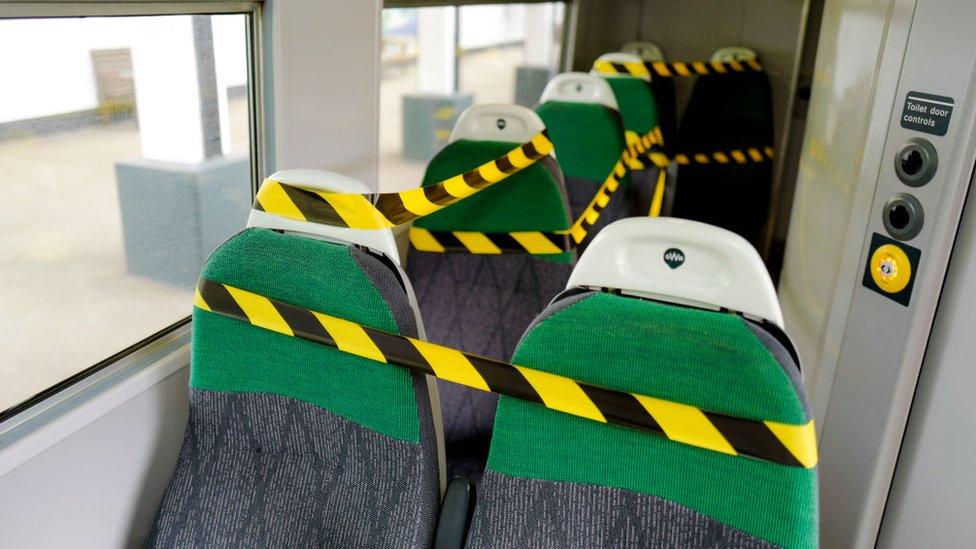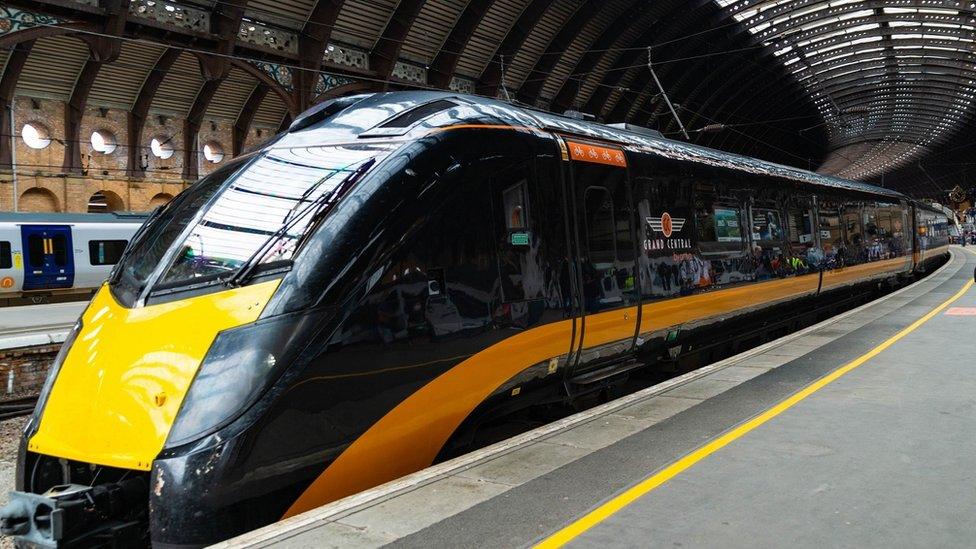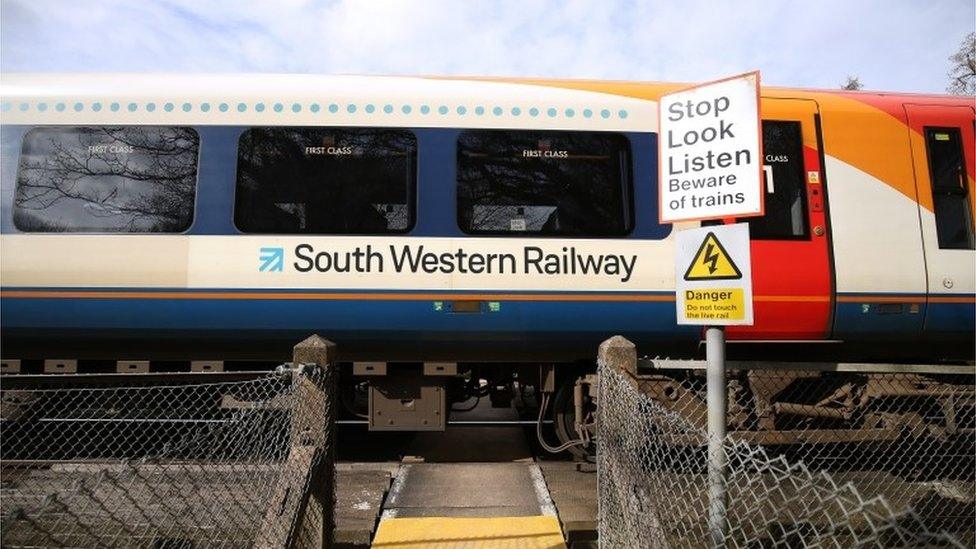Train services set to be reduced in lockdown
- Published
- comments

Train services are expected to be reduced during the national lockdown in England.
The extent of the cuts has not yet been confirmed, but some in the industry are anticipating reductions of between 50-60% of normal service.
As responsibility for railways is a devolved matter, these cuts will apply to services in England only.
A Department for Transport spokesperson said it will work with operators to assess the right level of services.
They added: "While we cannot predict the long-term effect of Covid-19 on travel patterns, it is critical that we ensure the railway can respond quickly to changes in passenger demand whilst supporting economic recovery."
Since the start of the pandemic, the government has spent billions of pounds covering the fall in ticket revenues owing to low passenger numbers.
In the first national lockdown in England, services were dramatically reduced to almost half.
Some in the industry anticipate a similar "Sunday-plus" service will run for the next few months, not least because the supply of trains will outstrip demand.
There may, however, be furtherdifficulties staffing trains, given the prevalence of the virus and staff members being asked to isolate.
One senior industry source has said that the changes could take between 10 days and two weeks to implement as the process of adjusting the timetable is a jigsaw-like complex process. Others anticipate it could take longer.

While services may be cut in some areas to as low as 50%, other services will not be reduced to this level.
Reports suggest that the reduced service will continue for three months. This will depend on the ongoing impact of the pandemic.
How quickly the new timetable will be implemented will also depend on the extent of the cuts and is likely to vary between operators.
Although timetables were restored when restrictions were eased over the summer, rail franchising has since been scrapped and replaced with a model which means the taxpayer is currently liable for the losses on the railways.
In September, the bill had run to more than £3.5bn and the Department for Transport has said "significant" support would still be needed.
- Published6 January 2021

- Published6 October 2020

- Published18 December 2020
